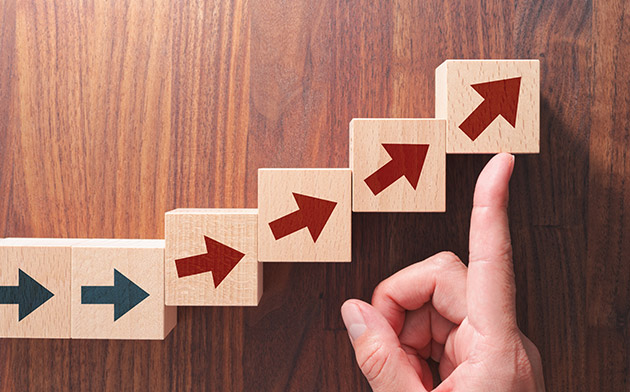What is credit? And why does it matter?
By definition, credit is the ability to borrow money or access goods and services with the promise that you’ll pay it back later. Credit is an integral part of your financial power, and fully understanding how it works will help you build a solid history that will open doors and advance your goals.

While misusing credit can be devastating, using it wisely offers many benefits, including:
- The ability to make large purchases—like a home or car—and pay them off over time rather than having to pay cash.
- Easy access to cash in an emergency—paying for a tow truck, medical costs, auto repairs, etc.
- Safety and convenience. It’s often safer to carry a credit card instead of cash when traveling because it's easier to replace if lost or stolen.
By the time you get through this article, you’ll have all the knowledge you need to ace our lending credit quiz, found at the bottom of this page.
Types of credit
There are two basic types of credit you’ll encounter throughout your life—collateralized loans and credit cards.
- Collateralized loans. Whenever you borrow money to pay for a vehicle, boat, motorcycle, or RV, generally the loan is collateralized. What this means is the item you’re buying is used to secure the loan, and if said loan goes into default (which is what happens if you miss one or more payments), a lender reserves the right to repossess the collateral. Bottom line: It’s a really good idea to keep up with your payments.
- Credit cards. A credit card is a convenient and flexible payment option for borrowing money. Credit cards don’t come without risks, however. Because they are so easy to use, you may fall into a habit of making several short-term purchases—sometimes using multiple cards—and watching your balance continue to rise. If you find yourself buried in debt, stop using your credit cards and concentrate on making, at the very least, the minimum payment on all your cards and paying off your highest-interest cards first. When choosing a credit card (or revolving credit, such as a department store charge account), consider the following:
- Compare interest rates and fees for several different cards.
- Don’t be easily lured into getting cards with low introductory rates. Those rates often shoot up after a given period of time or in the event of a late or missed payment.
- Read the fine print to make sure you’re getting the best deal.
For these and all other types of credit, you’ll typically pay interest, which is a charge tacked on to what you borrow for the privilege of using someone else’s money. Think of interest as a security blanket for credit unions, banks, and other lenders. Occasionally, you can find an interest-free loan, but for the most part, prepare to pay interest.
How to start building credit
Building your credit history takes time. Here are a few ways to get started:
- Look into getting a charge account at your favorite retail store.
- For your first loan, consider a share-secured loan, which uses your savings account money as security.
- Ask someone with well-established credit (like a family member) to co-sign your first loan, whether it be a small line of credit, vehicle loan, or other form of credit.
Once you’ve established a base, resist the urge to rush out and make huge purchases and max out your credit cards, just for the sake of boosting your credit score. Use credit sparingly, and responsibly, and you’ll soon be enjoying the benefits of a solid credit score.
Understanding your credit report and credit score
Your credit report is essentially a report card that reflects your credit history for the past 7 to 10 years. Your report is established as soon as a creditor inquires about your credit or you make a transaction that gets reported to one of the three credit bureaus (Equifax, Experian, and TransUnion). Maintaining a positive credit report throughout your life will come in handy when you take out a loan, rent or buy a home, and possibly even when applying for a job. Included on your credit report are:
- Credit inquiries—loans you applied for.
- Loan history—loans you received.
- Payment history—promptness of payments and whether any were missed.
Your credit score is calculated based on data in your credit report, and helps lenders evaluate the likelihood that you’ll pay back your loans. The higher your score, the better reputation you’ll have with lenders, which all may lead to better rates on loans. Your core is based on a few factors:
- Collections, delinquencies, and late payments.
- Capacity of credit lines.
- How far back your credit history goes.
- Debt accumulation.
There you have it—credit in a nutshell. Want to learn even more? Here’s some extra reading:
- Understanding Your FICO® Score
- Para comprender su calificación FICO®
- Your Credit Scores
- Glossary of Credit Words and Terms
Time to test your knowledge by taking our Credit Quiz. When you’re ready, click on the link below. Good luck!
Take the quiz


